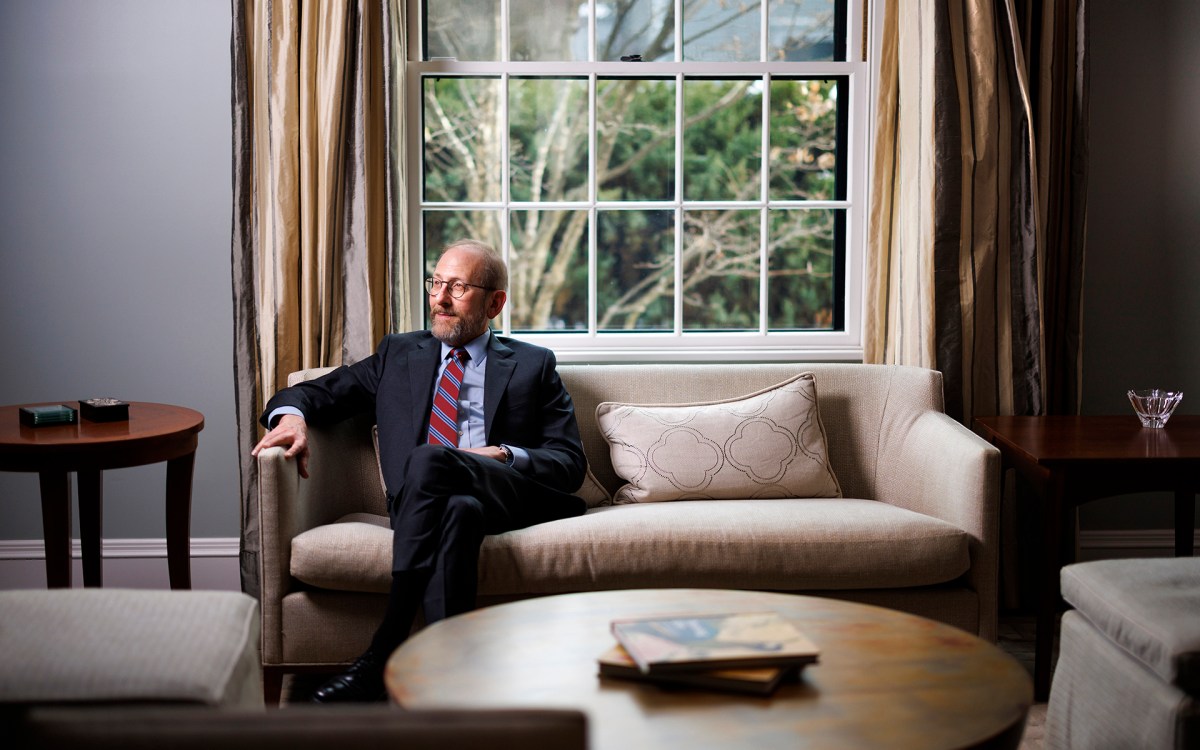HMS Dept. of Ophthalmology awarded RPB grant
The Harvard Medical School (HMS) Department of Ophthalmology was recently awarded a grant from Research to Prevent Blindness (RPB) for $110,000 to help support research into the causes, treatment, and prevention of diseases that cause blindness. Henry Willard Williams Professor of Ophthalmology Joan W. Miller, who chairs the department at HMS and is chief of ophthalmology at the Massachusetts Eye and Ear Infirmary, will help in leading the research programs.
Over the years, RPB — the world’s leading nongovernment supporter of eye research directed at the prevention, treatment, or eradication of all diseases that threaten vision, has awarded HMS grants totaling $5,245,215. Funding from RPB has supported research at the infirmary and other institutions into the causes of eye diseases such as age-related macular degeneration, retinitis pigmentosa, glaucoma, and melanoma.
“This grant allows the Department of Ophthalmology to offer the best treatment to patients by continuing the research that is needed to investigate the causes of vision loss and strategies to prevent and treat eye diseases,” said Miller.
RPB recognized the research and contributions of three of the most accomplished clinician-scientists of the Ophthalmology Department with individual grant awards. Dong Feng Chen, assistant professor of ophthalmology, received the Sybil Harrington Scholar Award for research on retinal diseases. The $50,000 grant will help Chen further study the repair of the optic nerve and retinal ganglion cells.
Janey L. Wiggs, associate professor of ophthalmology at HMS and ophthalmologist in glaucoma services at the Massachusetts Eye and Ear Infirmary, was presented 3with the Lew R. Wasserman Merit Award. The $55,000 grant will help support her research to identify the genes that develop the ocular disease glaucoma.
David G. Hunter, ophthalmologist-in-chief at Children’s Hospital Boston, was honored with the RPB Walt and Lilly Disney Award for Amblyopia Research. The $50,000 grant will facilitate Hunter’s efforts to develop new clinical tools to improve pediatric vision screening and prevent lifelong visual disability that results from undetected and untreated amblyopia (lazy eye) in children.
Founded in 1824, Massachusetts Eye and Ear Infirmary is an independent specialty hospital providing patient care for disorders of the eye, ear, nose, throat, head, and neck. The infirmary is an international leader in ophthalmology and otolaryngology research and a teaching partner of Harvard Medical School.




